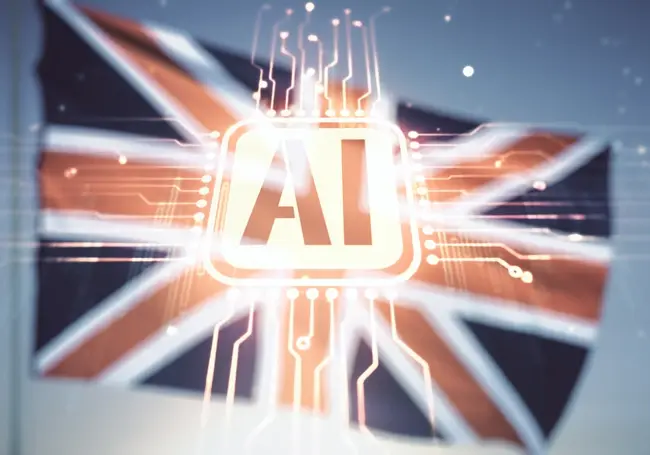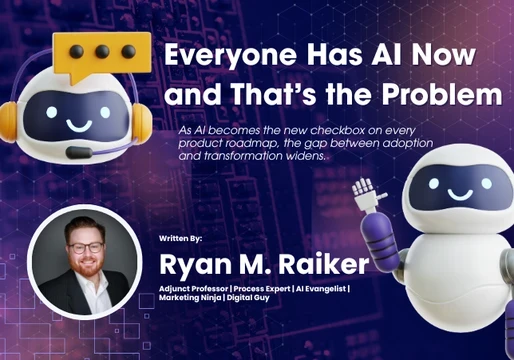The UK government has splashed out £100 million to launch a task force that can accelerate the UK’s development of generative AI technology and drive innovation in the country.
The Foundation Model Taskforce, announced yesterday by Prime Minister Rishi Sunak and Technology Secretary Michelle Donelan, is hoped to spur the UK’s development of large language models like OpenAI’s ChatGPT in a bid to boost the nation’s GDP.
"Harnessing the potential of AI provides enormous opportunities to grow our economy, create better-paid jobs, and build a better future through advances in healthcare and security," British Prime Minister Rishi Sunak said in a statement released on Monday.
“By investing in emerging technologies through our new expert taskforce, we can continue to lead the way in developing safe and trustworthy AI as part of shaping a more innovative UK economy.”
The government said the task force aims to create technology that helps British businesses and developers construct better AI systems, as well as to bring AI innovation to public services.
Specifically, the development will be geared towards building technologies for healthcare and education to help improve the accuracy and rate of diagnoses in healthcare and relieve the stress on teachers.
We're launching a Foundation Model Taskforce to fortify the UK’s capabilities in developing AI tech 👩💻
— Department for Science, Innovation and Technology (@SciTechgovuk) April 24, 2023
The £100m investment will help establish the UK as a world leader in this tech and recognise its real life impact.
📽️ @michelledonelan @matthewcliffordhttps://t.co/ASJt5WgWBA pic.twitter.com/tz8ircOlFR
Members of the task force will include government and industry experts, who will report directly to the prime minister and the secretary for science, innovation and technology.
The first pilot projects are expected to launch within the next six months. It is yet to be seen who will lead the initiative.

A drop in the ocean
The move follows the government’s earlier commitment to invest £900 million ($1.1 billion) to build a supercomputer designed to train and run the AI models – which has since been dubbed BritGPT.
While experts have largely welcomed the move, some believe that belief that its financial commitment falls short of what is required to build AI systems capable of competing with some of the world’s biggest players.
“£100m is a small ticket and doesn't stack up to becoming a tech "superpower". China and the US are investing at least 100 times that amount – even if some of the £900m set for compute resources does get funnelled into generative AI too, this will not suffice, said Harry Keen, co-founder and CEO of London-based Generative AI start-up, Hazy.
“In the US alone, equivalent amounts are being invested into single companies in this space, so it's difficult to see what tangible impact this money will have," Keen added.
Large AI models are expensive to build, requiring huge amounts of computing power and data, as well as specialised expertise to be able to train and deploy systems nationwide.
New models, such as OpenAI’s GPT, cost several hundred million dollars to build and constantly improve, and the UK government’s investment is a drop in the ocean compared to global investments to accelerate AI developments.
To read more about generative AI, visit our dedicated AI in the Enterprise Page.
Microsoft, for instance, has so far invested over £11 billion into ChatGPT creator OpenAI with the aim of integrating the firm’s Large Language Model into Windows services.
Meanwhile, London-based AI lab Deepmind has merged with Google in a $500 million deal and that gives the firm billions in funding for an independent unit for Google.
Other startups such as Anthropic and Stability AI are also reportedly seeking to raise billions of dollars to fund training and testing.
“The next Tech Superpower”
Regardless of the UK’s investment into AI falling short, the move is just one of its several initiatives launched as part of the government’s Spring Budget to turn Britain into the next tech superpower within the next ten years.
“The government is right to back generative AI hard and try to nurture an ecosystem here in the UK, Keen said.
“We have the right ingredients, academic research institutions to push the technology further, a broad swathe of other financial backers to help fund it and a healthy economy of businesses and consumers that can use the products built on this tech.
The UK government believes AI technology and machine learning could boost global GDP by seven per cent over a decade and hopes the country will catch a chunk of that growth. Experts at the International Monetary Fund predict the nation's annual GDP will shrink by 0.3 per cent this year.
"We need to act now to seize the opportunities AI can offer us in the future. We're backing our expert task force with the funding to make our ambitions for an AI-enabled country a reality and keep the UK at the front of the pack in this emerging technology," Technology Minister Donelan said.
"To ensure such leadership, the greatest capability we can develop is in the safety and reliability of such systems. This will ensure that the public and businesses have the trust they need to confidently adopt this technology and fully realise its benefits. That is exactly what this task force will prioritise."







Comments ( 0 )